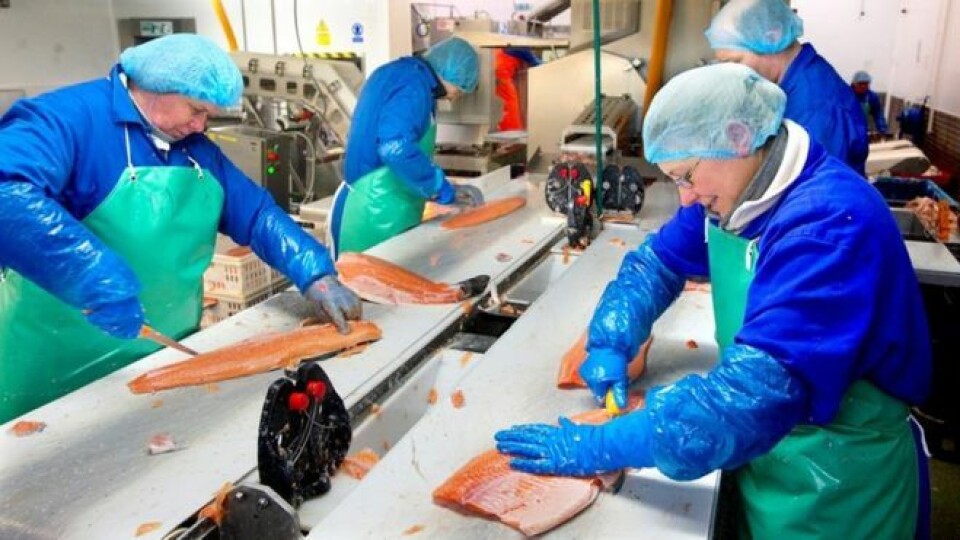
Salmon farmers join call for urgent talks over UK immigration plans
The Scottish Salmon Producers’ Organisation and the Scottish Seafood Association, which represents the processing sector, today made a joint call for urgent discussions with UK government ministers about the impact of Westminster’s post-Brexit immigration plans.
Freedom of movement between the UK and EU ends on December 31, and ministers say it should be replaced with a points-based system aimed at limiting entry to skilled workers earning at least £25,600 a year.
The SSPO and SSA highlighted the dependence of the processing sector on overseas labour and stressed the importance of ensuring that businesses were able to be fully staffed to deal with the growth in seafood volumes from January 2021.
Vital to viability
SSA chief executive Jimmy Buchan said: “These immigration plans have the potential to severely restrict the economic boost that will flow from the UK’s exit from the Common Fisheries Policy.
“At the point of expansion, we need ministers to allow scope for recruitment of skilled, semi-skilled and unskilled labour as they are all vital to the viability of the sector.
“We will take our case to the UK government in the coming days and weeks.”

Hinder production
SSPO chief executive Julie Hesketh-Laird said: “We are concerned that these proposals, as drafted, could hinder the production and processing of Scottish salmon.
“We are seeking urgent meetings with UK government ministers to find ways of making these plans work better for our sector.”
Workers from European Economic Area countries currently make up 48% of the Scottish processing sector’s workforce as a whole and 70% in the north east of Scotland.
More than half of the 190-strong workforce of one processer, employee-owned Ross-shire firm Aquascot, is comprised of migrants from Europe.
Redfine ‘skilled’
A spokesman for the company said: “We would hope, firstly, that the definition of the word ‘skilled’ may be broadened to capture not only some of the food processing work but also the work undertaken by many of the farmers who supply us. Not all food processing or farming work is unskilled, far from it.
“And secondly, we hope that those more remote areas such as the Highlands and Islands, where businesses are the lifeblood of communities, are provided with as even a playing field as possible when it comes to the competition for that most important asset for any business: its people.
“Businesses such as salmon farms and processing units which need large numbers of people and, due to the farming geography, are necessarily operating in sparsely populated areas, should perhaps receive some sort of dispensation from the broader migration policy as we currently understand it.”























































